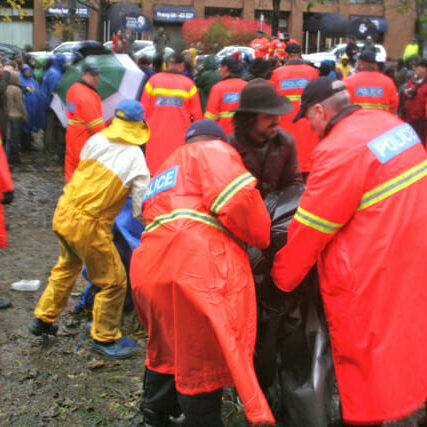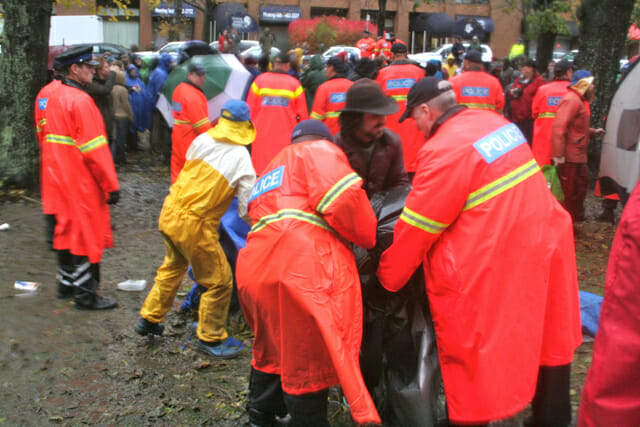
Legal community investigates grounds for Occupy NS eviction
Following the eviction of Occupy Nova Scotia protestors on Nov. 11 from Victoria Park, the Halifax legal community is in the process of gathering evidence toward a constitutional challenge of city council’s decision.
Working with the Occupy Nova Scotia legal working group, Dal Legal Aid Services and volunteers from the community are discussing the constitutional validity of the bylaw used as the grounds for the eviction. If successful, the bylaw will be deemed unconstitutional and will be barred from being used in the future to restrict the political expression of demonstrators.
David Wallbridge is a labour and municipal planning lawyer with the firm Pink Larkin. Though he has been working in law for more than six years now, he is also committed to involving himself with provincial and federal politics, taking a particular interest in legislative labour issues.
Wallbridge says discussions are currently focused on how certain provisions of the bylaw used to evict Occupy Nova Scotia, the Municipal Parks Bylaw, restricted the protestors’ freedom of expression. The Municipal Parks Bylaw bans camping, the erection of permanent or temporary structures, and puts a time period ban between 10 p.m. and 5 a.m. on being in a park.
At the heart of the matter is the legal community’s concern with how the Municipal Parks Bylaw restricts Section 2(b) of the Charter of Rights and Freedoms, which guarantees the right to freedom of expression and freedom of assembly.
Wallbridge says it’s a question of reasonable limits –of whether the rights of the protestors to express themselves politically are infringing on the rights of the rest of the city to enjoy the park, and if evicting the protestors is a proportionate response by city council.
Wallbridge says he is skeptical about some of the provisions used to evict protestors. “I was surprised they [city council] relied on the restriction of being in the park between 10 p.m. and 5 a.m., because as someone who has been in the city around the HRM at night, I’ve definitely seen people in the parks after 10 p.m.”
“Occupy Nova Scotia is a form of political expression and as part of it, they occupied a geographic space within these parks, set up tents, and established a community – that’s not recreational camping,” says Wallbridge. “My view is just that two of the provisions just seem to be pretty marginal in their merit.”
The non-violent protestors occupying Grand Parade Square were asked to relocate in the days leading up to Remembrance Day so that the ceremonies could take place as usual. On the afternoon of Remembrance Day, occupiers were ordered out of Victoria Park, and by 4 p.m., 14 demonstrators had been arrested on counts of obstruction of justice.
Occupy Nova Scotia is by no means the only Occupy movement to go head-to -head with the police. Evictions have taken place in communities across the country, including Victoria, Vancouver and Toronto. But Wallbridge feels the demonstrations in those cities were better handled. “Notice was given and there was a court process that determined after the fact whether the occupiers should be removed,” he says.
City council’s closed-door decision to evict the protestors on Remembrance Day without any public discussion or warning has garnered controversy in the days and weeks following. Freedom of Information and Protection of Privacy requests are currently being submitted to HRM for the release of all documents surrounding city council’s decision.
“Because this happened in closed session differently from how it happened in other cities, those documents should be released so we know whose decision it was,” Wallbridge says.







